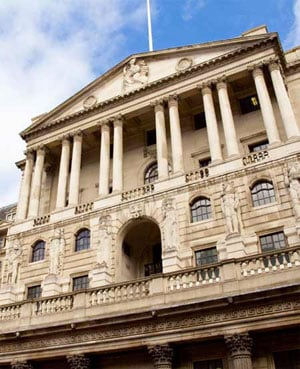MILESTONES: UK
By Anita Hawser
The ongoing controversy surrounding Libor, the global benchmark interest rate used for pricing financial contracts, has sparked a wider debate about the merits of using alternative reference rates.
 |
|
The Bank of England was warned about Libor rate rigging four years ago |
Following revelations that traders at UK bank, Barclays, manipulated Libor to make their cost of financing and balance sheet look more favorable in the interbank lending market, the UK government conducted an independent review of Libor.
The Wheatley Review, the final report of which was published in late September, stopped short of recommending replacing Libor and instead focused on restoring confidence in the benchmark, which was first developed in the 1980s, by recommending a series of reforms. Martin Wheatley, the Financial Services Authority’s head of conduct, maintains that replacing Libor with a new benchmark or benchmarks would pose an unacceptably high risk of financial instability, given that it is used in a vast number of financial transactions.
Wheatley believes Libor’s reputation as a global benchmark can be rectified through a “comprehensive and far-reaching program of reform,” including asking for transaction data to support banks’ Libor submissions and transferring administration of the benchmark to an organization other than the British Bankers’ Association.
Other market players have proposed scrapping the use of Libor reference rates for Swedish kronor, as well as for Australian, Canadian and New Zealand dollars and Danish kroner.
Tony Anderson, a partner in the banking team at international law firm Pinsent Masons, says the Canadian central bank has said that it will work with the UK during the transition period to establish an alternative benchmark. “The idea is to make Libor more manageable by reducing its scope to cover currencies and tenors where there is a sufficient amount of trade data to effectively corroborate submissions,” says Anderson. Those currencies that will no longer use Libor as a reference rate may look to domestic jurisdictions for benchmarks. Other segments of the market have already developed alternatives. At the Global Islamic Finance Forum in Malaysia in September, Rushdi Siddiqui, global director, Islamic finance, at Thomson Reuters, spoke about an Islamic interbank benchmark rate. Siddiqui stressed that the Islamic benchmark was more transparent than Libor as it is overseen by an independent committee and a shariah committee.



